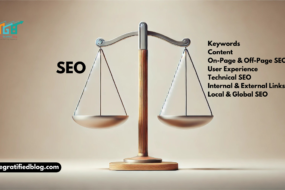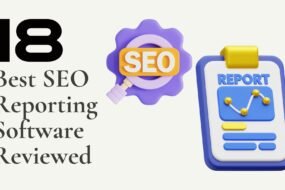
Event marketing is an essential component of event planning, which involves promoting an event to increase attendance and engagement. In recent years, event marketing has witnessed significant changes with the emergence of digital marketing channels such as social media, email marketing, and search engine optimization (SEO). These trends have transformed the way event organizers reach out to their target audience, interact with them, and measure the success of their efforts.
Search engine optimization (SEO) is a powerful digital marketing strategy that helps improve the visibility and ranking of a website in search engine results pages (SERPs). When it comes to event marketing, SEO plays a critical role in driving traffic to an event website, increasing ticket sales, and enhancing brand awareness. This article will explore the key aspects of SEO for event marketing and provide practical tips and best practices to help event organizers maximize their online presence.
This article is a comprehensive SEO guide for event marketing that covers everything you need to know about event marketing SEO. It starts with keyword research, on-page optimization, off-page optimization, and technical SEO, followed by local SEO and measuring SEO success.
Each section will provide an in-depth analysis of the topic and actionable tips and best practices to help event organizers optimize their event website and improve their online visibility. By the end of this article, readers will have a comprehensive understanding of how to implement SEO for event websites and measure their success.
Step By Step SEO Guide For Event Marketing

SEO for events involves optimizing the event website and content to rank higher in search engine results pages (SERPs) and increase visibility to the target audience. Here are the essential steps to follow when doing SEO for events:
Keyword Research
Keyword research identifies and analyses the search terms and phrases that users enter into search engines when looking for a particular product, service, or information. The objective of keyword research is to discover the most relevant and valuable keywords to the target audience and use them to optimize the content and website for search engines.
Keyword research is crucial for event marketing as it helps event organizers understand the search behaviour of their target audience and create relevant and optimized content to meet their needs. By identifying the most popular and relevant keywords, event organizers can optimize their website and content to rank higher in search engine results pages (SERPs), increase traffic, and improve visibility.
Steps To Conduct Keyword Research
- Identify the main topics related to the event: Start by brainstorming the main topics or themes related to the event, such as the event name, location, industry, audience, and speakers.
- Use keyword research tools: Use keyword research tools such as Google Keyword Planner, SEMrush, Ahrefs, or Moz to discover relevant keywords and phrases related to the event topics. These tools provide information about the search volume, competition, and relevancy of the SEO keywords for event planners.
- Analyze competitor keywords: Analyze the keywords used by competitors in their event promotions and incorporate them into your keyword strategy.
- Group the keywords: Group the keywords into categories based on their relevance, search volume, and competition level.
Top Tools For Keyword Research
- Google Keyword Planner: A free tool by Google that provides keyword ideas and search volume data.
- SEMrush: A paid tool that offers keyword research, competitive analysis, and site audit features.
- Ahrefs: A paid tool that provides keyword research, backlink analysis, and site audit features.
- Moz: A paid tool that provides keyword research, site audit, and link-building features.
On-Page Optimization
On-page optimization refers to optimizing the content and structure of a website to improve its relevance and visibility to search engines. In event marketing, on-page optimization involves optimizing the event website and its content to rank higher in search engine results pages (SERPs) and drive traffic to the event.
Elements Of On-Page Optimization
- Title tag: The title tag is an HTML element that appears in the search engine results pages (SERPs) as the clickable headline for a webpage. It should include the target keyword and be descriptive and compelling to attract clicks.
- Meta description: The meta description is a short description that appears under the title tag in the SERPs. It should be informative and persuasive and include the target keyword.
- Headings: Headings (H1, H2, H3, etc.) are used to structure the content of a webpage and indicate its hierarchy. They should include the target keyword and be descriptive and relevant.
- Content: The content of the event website should be relevant, engaging, and optimized for the target keyword. It should include images, videos, and other multimedia to enhance the user experience.
- URL structure: The URL structure of the event website should be simple, descriptive, and include the target keyword.
- Internal linking: Internal linking is linking to other pages on the event website. It helps to distribute link equity and improve the crawlability of the website.
Best Practices For On-Page Optimization
- Conduct keyword research and use relevant keywords throughout the website and content.
- Create unique and informative title tags and meta descriptions for each page.
- Use descriptive and relevant headings to structure the content.
- Optimize the content with multimedia such as images and videos.
- Use a simple and descriptive URL structure.
- Use internal linking to distribute link equity and improve crawlability.
- Optimize website speed and user experience.
- Ensure the website is mobile-friendly and responsive.
Off-Page Optimization
Off-page optimization refers to the techniques used to improve the visibility and authority of a website through external factors such as link building, social media marketing, and online reputation management. In event marketing, off-page optimization involves building links and promoting the event through various online channels to increase its visibility and attract attendees.
Elements Of Off-Page Optimization
- Link building: Link building is acquiring links from other websites to your event website. These links signal to search engines that the content on your website is valuable and relevant and can improve your website’s ranking in the SERPs.
- Social media marketing: Social media platforms such as Facebook, Twitter, and Instagram can be used to promote the event, engage with attendees, and generate buzz.
- Online reputation management: Online reputation management involves monitoring and managing online reviews and mentions of the event to maintain a positive image and attract attendees.
Best Practices For Off-Page Optimization
- Build high-quality links from relevant and authoritative websites.
- Use social media platforms to promote the event and engage with attendees.
- Encourage attendees to leave positive reviews and share their experiences on social media.
- Monitor online reviews and mentions of the event and respond to negative feedback promptly.
- Collaborate with industry influencers and partners to promote the event and reach a wider audience.
- Use paid advertising to promote the event on social media and search engines.
- Leverage email marketing to promote the event and keep attendees informed.
Technical SEO
Technical SEO refers to optimising a website’s technical aspects to improve its search engine visibility and performance. In event marketing, technical SEO involves optimizing the event website’s technical infrastructure, such as site speed, crawlability, and mobile-friendliness, to improve its ranking in the SERPs and provide a better user experience.
Elements Of Technical SEO
- Site speed: Site speed is a critical factor in both user experience and search engine ranking. Optimizing images, minimizing code, and leveraging caching and compression can all help to improve site speed.
- Mobile-friendliness: With the increasing use of mobile devices, it is essential that event websites are optimized for mobile. Responsive design, mobile-friendly navigation, and touch-friendly buttons are all key elements of mobile optimization.
- Site architecture: The site architecture should be designed to facilitate crawlability and make it easy for search engines to navigate the website. This includes optimizing URL structure, using XML sitemaps, and avoiding duplicate content.
- HTTPS: Switching to HTTPS can improve website security and provide a ranking boost in the SERPs.
- Structured data: Using structured data can help search engines better understand the content on the event website and display rich snippets in the SERPs.
Best Practices For Technical SEO
- Conduct regular website audits to identify technical issues and opportunities for improvement.
- Optimize site speed by compressing images, minimizing code, and leveraging caching and compression.
- Ensure the website is mobile-friendly and responsive.
- Optimize site architecture to facilitate crawlability and avoid duplicate content.
- Switch to HTTPS to improve website security and provide a ranking boost.
- Use structured data to help search engines better understand the content on the website.
- Regularly monitor and maintain the website to ensure technical optimization is up-to-date.
Local SEO
Local SEO refers to the process of optimizing a website or online presence to improve its visibility and ranking in local search results. In event marketing, local SEO can help to promote the event to a local audience and increase attendance.
Elements Of Local SEO
- Local keyword optimization: Incorporating local keywords, such as the city, state, and region, in website content, meta descriptions, and title tags can help to improve local search rankings.
- Local business directories: Listing the event in local business directories, such as Yelp and Google My Business, can help to improve visibility and increase attendance.
- Location-based content: Creating content related to the local area, such as attractions and restaurants, can help to attract local attendees and improve local search rankings.
- Location-specific landing pages: Creating landing pages specific to the event location can help improve local search rankings and provide valuable information to potential attendees.
Best Practices For Local SEO
- Use consistent and accurate business information across all online platforms, such as the event name, address, and phone number.
- Optimize website content and meta tags for local keywords.
- Build high-quality local backlinks to the event website.
- Use event schema documentation (schema markup) to provide search engines with additional information about the event, such as the date, time, and location.
- Encourage attendees to leave reviews and ratings on local business directories to improve visibility and increase attendance.
- Monitor and analyze local search rankings and adjust local SEO strategies accordingly.
6 Key Metrics For Measuring Event SEO Success
- Organic search traffic: The number of visitors who arrive at the event website via organic search results.
- Keyword rankings: The event website’s ranking for targeted keywords in search engine results pages (SERPs).
- Backlinks: The number and quality of links pointing to the event website from other websites.
- Local search visibility: The event website’s visibility and ranking in local search results.
- Click-through rates (CTR): The percentage of users who click on the event website’s link in search results.
- Conversion rates: The percentage of visitors who complete a desired action on the event website, such as registering for the event.
Analytics Tools For Measuring Event SEO
- Google Analytics: A free tool that provides data on website traffic, keyword rankings, and other important metrics.
- SEMrush: A paid tool that offers keyword research, backlink analysis, and competitor analysis. Also, you can look for SEO guide SEMrush for more help.
- Ahrefs: A paid tool that provides detailed analysis of backlinks and keyword rankings.
- Moz: A paid tool that offers a range of SEO analytics and reporting features, including keyword research and link analysis.
Best Practices For Measuring Event SEO Success
- Set clear goals and objectives for the event SEO campaign, such as increasing organic search traffic or improving keyword rankings.
- Use a variety of analytics tools to track and measure key metrics.
- Regularly analyze and report on SEO performance to identify areas for improvement and adjust strategies accordingly.
- Optimize website content and SEO strategies to improve search rankings and drive more traffic and conversions.
Conclusion
SEO is a critical component of event marketing, as it helps to increase visibility, drive traffic, and improve attendance. By implementing the best practices outlined in this article, event marketers can create a solid online presence for their events and achieve their marketing goals.
We encourage readers to implement an SEO strategy for events and to continuously optimize and refine their SEO efforts to improve search rankings and drive more traffic and conversions. By doing so, event marketers can reach a larger audience, generate more leads, and increase event attendance.








No Comments